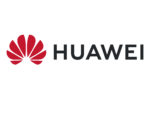Chinese artificial intelligence company iFlyTek is eyeing expansion in Europe as tensions between the United States and China escalate. Vice President Vincent Zhan revealed the company’s strategy at the Mobile World Congress in Barcelona, acknowledging the impact of the ongoing U.S.-China trade war on its business.
Zhan pointed out that North America, the company’s largest market outside of China, has faced challenges due to the rising trade barriers. In light of new tariffs imposed by U.S. President Donald Trump, iFlyTek is seeking to diversify its supply chain and reduce dependency on the North American market.
The latest tariffs introduced by Trump target several Chinese electronics categories, including smartphones, laptops, and smart devices. Additionally, Biden’s administration had previously imposed tariffs on Chinese computer chips, further complicating the situation for Chinese tech firms.
Despite these challenges, iFlyTek is making significant strides in Europe, where it currently operates in France and Hungary. The company plans to expand its presence, with Zhan mentioning that a new office in Paris is expected either this year or next. The firm also aims to broaden its footprint in Europe, with potential plans to enter Spain and Italy in the coming year.
At the Mobile World Congress, iFlyTek launched a new tablet featuring advanced transcription capabilities, underscoring the importance of the European market for the company. Zhan also hinted at further European expansion, selecting new countries based on partnerships already established.
The company, which has a market capitalization of 123 billion Chinese yuan ($16.97 billion), faced significant hurdles in 2019 when it was added to a U.S. trade blacklist. This designation has restricted iFlyTek from purchasing essential components, such as Nvidia’s AI chips, from American suppliers without U.S. government approval. In response, iFlyTek has turned to alternative sources, including Huawei chips and AI models from rising star DeepSeek.
While the trade challenges persist, Zhan expressed confidence in the company’s ability to navigate the situation. He highlighted that many Chinese companies are now manufacturing their own AI chips, a development that has helped mitigate some of the impact from U.S. trade policies.















